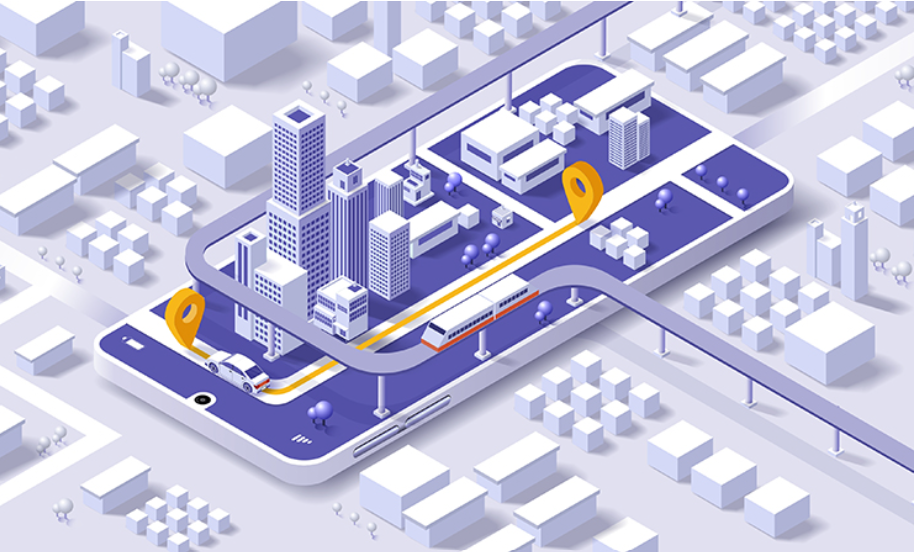
The concept of Mobility-as-a-Service (MaaS) continues to shape urban transportation, offering a unified platform for accessing various modes of travel seamlessly. This evolution presents an opportunity to enhance sustainability in transport, improve industry accessibility, and foster collaboration between public and private sectors.
In recent years, MaaS has emerged as a pivotal solution in promoting sustainable transportation choices. By consolidating multiple transportation services into a single platform, individuals gain access to diverse and eco-friendly travel options, spanning public transport, ride-hailing, and micro-mobility. This convergence empowers users with enhanced flexibility and promotes environmentally conscious commuting practices. Furthermore, MaaS plays a crucial role in addressing accessibility within the transportation industry. Through its integrated approach, MaaS platforms strive to cater to the diverse needs of commuters, ensuring that travel is convenient and inclusive for all individuals. This inclusivity extends to different demographic groups, geographical areas, and mobility preferences, fostering a more equitable transportation landscape. The transformative impact of MaaS underscores the importance of collaboration between public and private entities. By working together, stakeholders can leverage their respective strengths to enhance the efficiency and effectiveness of transportation systems. This collaborative approach facilitates innovation, drives technological advancements, and ultimately benefits both commuters and the broader community.
Driving towards sustainability
The ongoing evolution of Mobility-as-a-Service (MaaS) is increasingly evident, driven by escalating environmental concerns among consumers, political leaders, and businesses alike. Many researches indicates that sustainability holds significant importance for Europeans, with 91% considering it crucial for their cities, and 62% advocating for strong incentives to promote sustainable travel behavior. This sentiment is particularly pronounced in the push to reduce private car usage in urban areas where alternative shared transportation options are readily available.
As individuals actively seek to minimize their reliance on private vehicles, cities are compelled to enhance access to sustainable, shared transportation alternatives. Shared vehicles, on average, experience up to six times more utilization than private cars, and in cities where shared mobility predominates, less than 10% of the current vehicle stock would be necessary for comprehensive transportation. Therefore, fostering collaboration with MaaS platforms, which aggregate diverse shared transport options, becomes imperative for fostering vibrant and environmentally friendly urban environments.
Improving accessibility for all
Mobility-as-a-Service (MaaS) serves a dual purpose, enriching the travel experience for all users while also addressing the needs of vulnerable populations in accessing diverse transport services. Individuals with disabilities and other vulnerable groups, for instance, heavily rely on accessible transportation options, such as wheelchair-friendly vehicles. According to government research, disabled travellers depend on taxi services 55% more than those without disabilities, underscoring the critical role of such services in ensuring mobility for all.
The issue of accessibility transcends national boundaries, as evidenced by research indicating a widespread desire among European citizens for a unified app integrating all transport options. Seamless integration with public transport networks, real-time data sharing, and cross-regional compatibility are essential features sought by users to enhance their travel experiences. Consolidating all transport services within a single platform not only simplifies journey planning but also significantly improves accessibility for individuals with disabilities, streamlining their travels and promoting peace of mind throughout their journeys.
Enhancing Collaboration for MaaS Advancement
Collaboration between public and private transport sectors is a critical challenge facing Mobility-as-a-Service (MaaS) globally. The lack of standardized ticketing systems and diverse technical setups among operators hinder the development of scalable and compelling MaaS offerings.
Expanding Access to Public Transport Tickets
To overcome this hurdle, cities and regions worldwide must expand access to public transport tickets through MaaS platforms, fostering integrated and user-centric solutions. While public MaaS systems are beneficial, limiting ticket distribution solely to these platforms restricts user options. Embracing collaboration with multiple platforms is essential, especially as passenger demand for multi-mobility apps continues to rise globally.
Government Support for Innovation
Moreover, to foster innovation and collaboration within the sector, governments must support MaaS initiatives through investment and policy frameworks. Public policies should prioritize making transportation more accessible and efficient, with recent initiatives like extending incentives for electric vehicles serving as examples.
Evolution of Corporate Travel Patterns
As corporate travel patterns evolve, businesses are shifting away from traditional company car benefits. Instead, they are increasingly promoting multi-mobility options among employees to meet sustainability goals while considering factors like speed, reliability, and comfort.
Adoption of Electric Vehicle Technologies
Furthermore, the adoption of electric vehicle technologies within fleet operations offers significant sustainability benefits. Fleet vehicles, such as taxis, maintain constant movement, reducing the need for parking spaces and easing congestion. By synchronizing efficiently with other modes of transport, fleets contribute to overall transportation optimization, aligning with efforts to prioritize pedestrian and cyclist spaces in urban areas.
Unlocking the Potential of MaaS
Ultimately, MaaS holds the potential to revolutionize transport systems globally, offering personalized and efficient solutions while unlocking environmental and economic benefits. As users increasingly embrace multi-modal transport options, collaboration between cities and existing MaaS platforms becomes paramount. By leveraging insights and data from these platforms, cities can support communities with fairer, more sustainable transport systems tailored to diverse needs and preferences.
Source: Intelligent Transport.
